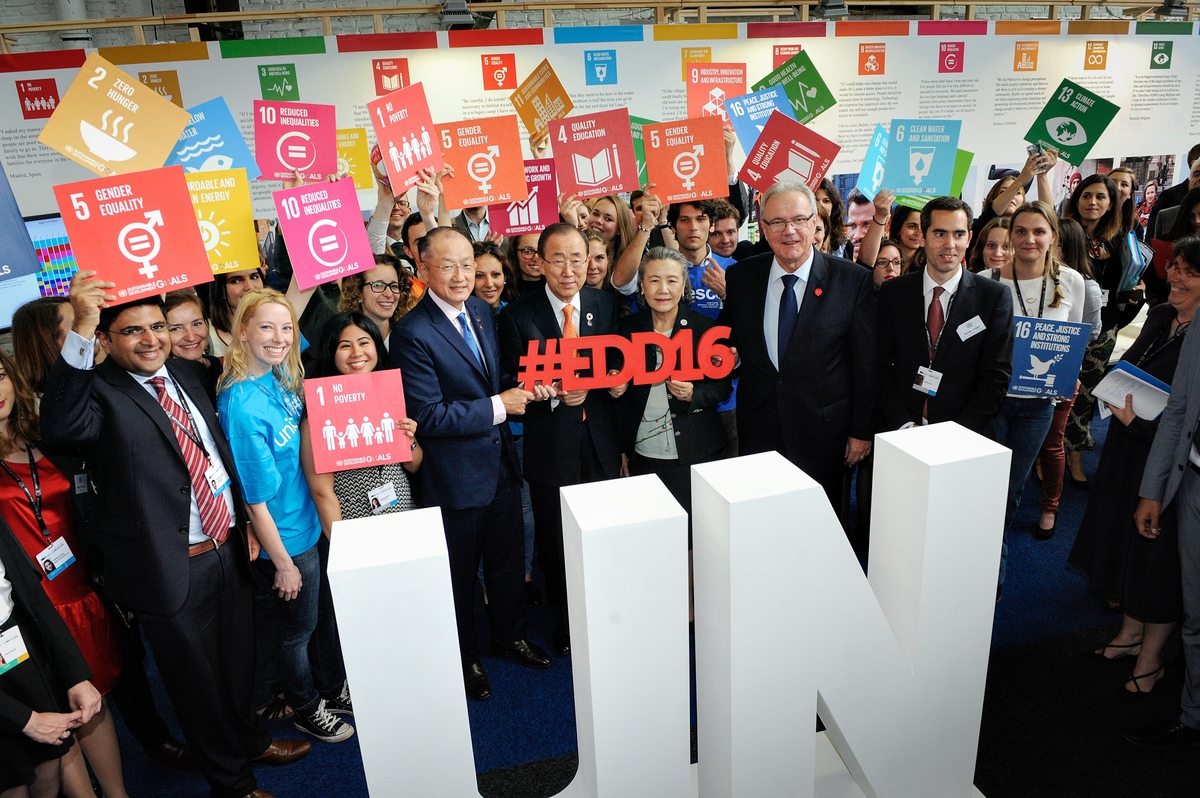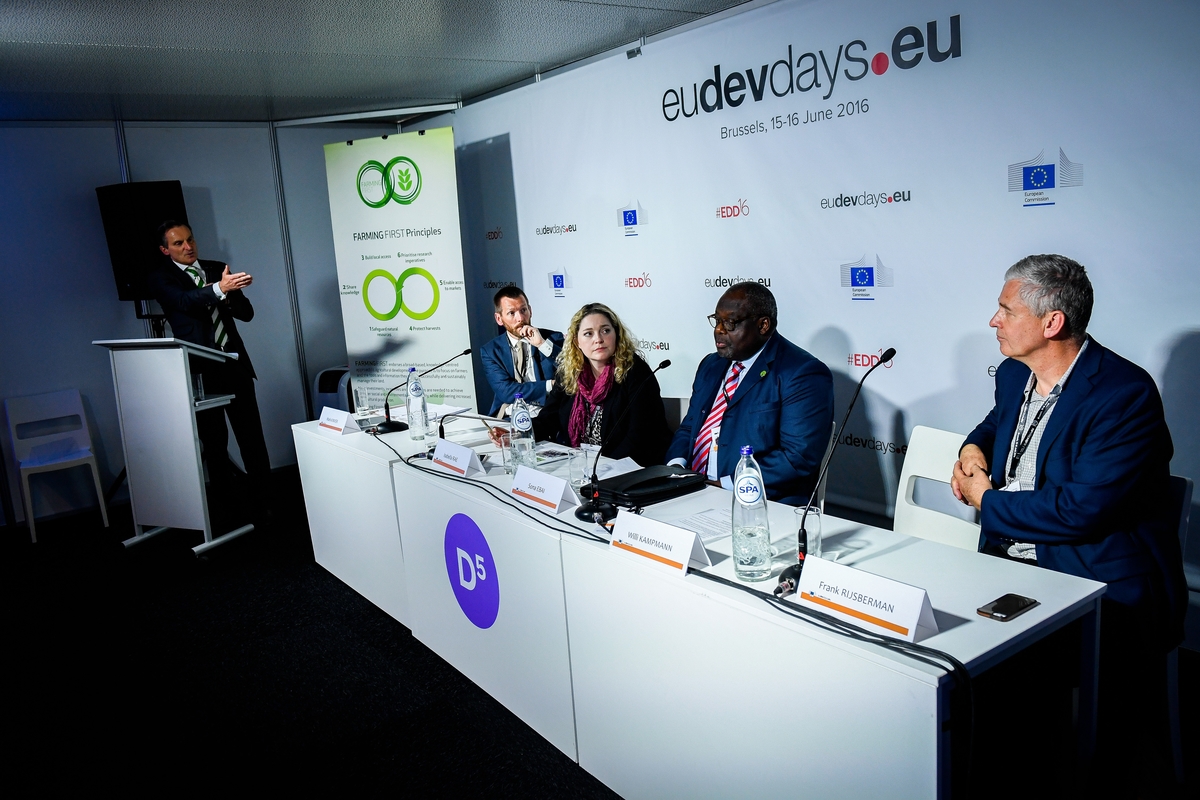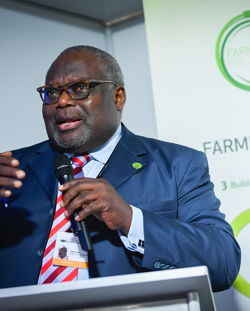The 10th EU Development Days took place in Brussels this week, following the theme of “Sustainable Development Goals in Action: Our World, Our Dignity, Our Future“. The major event, which attracted over 42,000 participants from all over the world, was opened by the UN Secretary, Ban Ki Moon, President of The World Bank Group Jim Yong Kim, and Heads of State from eight countries.

“The Millennium Development Goals left their mark”, commented Ban Kim Moon during the opening ceremony, “but the truly transformative Sustainable Development Goal agenda will take us even further”. He added that national borders cannot defend against collective threats such as climate change, disease and economic shocks, and that we must face them all as “a global family”.
Over 500 sessions were held, focusing on various aspects of Agenda 2030. To continue our 2015 campaign to highlight agriculture as the common thread in the 17 interlinked Sustainable Development Goals (SDGs), Farming First teamed up with CGIAR to host a side event: “Meeting the Sustainable Development Goals with science: How innovation in agriculture is affecting global change.”
Moderated by BBC Science & Environment reporter Mark Kinver, four panelists told stories from the field about how science, technology and innovation have been successfully harnessed in agriculture, to contribute to many of the SDGs, not only those pertaining to hunger.

Frank Rijsberman, CEO of CGIAR focused on agricultural science interventions to improve the health of both people and the planet. Four billion people in the world are eating in a way that is making them ill, he commented, be that through malnutrition or obesity. Furthermore, agriculture is the number one cause of planetary ills, from deforestation and desertification to water pollution. He cited several CGIAR programs that are working to rectify this situation – from biofortified crops to climate smart villages. Read his Huffington Blog post on the topic here.
Isabella Rae, Head of Policy & Research at Gorta-Self Help Africa, asked the question: is it possible to measure resilience? Self Help Africa have devised a framework to assist resilience programming, to build economic, ecological and organisational resilience. Isabella shared recent results from Malawi, where a programme is helping 13,000 households boost their resilience to climate change. Find out how it works here
Sona Ebai, Chief of Party for the World Cocoa Foundation‘s African Initiative, explored an innovative extension model from West Africa, which has helped smallholder cocoa farmers fight of pests, and protect their harvests. The public-private partnership model followed the “training the trainer” approach, to ensure the proper and safe use of pest control products. Farmers were not only able to improve their income, and protect their local environment from unnecessary harm, many were also able to send their children to school as a result. Watch the video below to learn more.
Our final speaker, Willi Kampmann of the World Farmers’ Organisation, discussed the importance of organising farmers in order to empower them. Speaking of WFO’s work around the world, to engage farmers at a political, regional and local level, he also commented on the importance of improving access to technologies through models such as machinery rings, which are co-owned and managed by farmers themselves.
To follow more action from the EU Development Days, search for the hashtag #EDD16 on Twitter.



